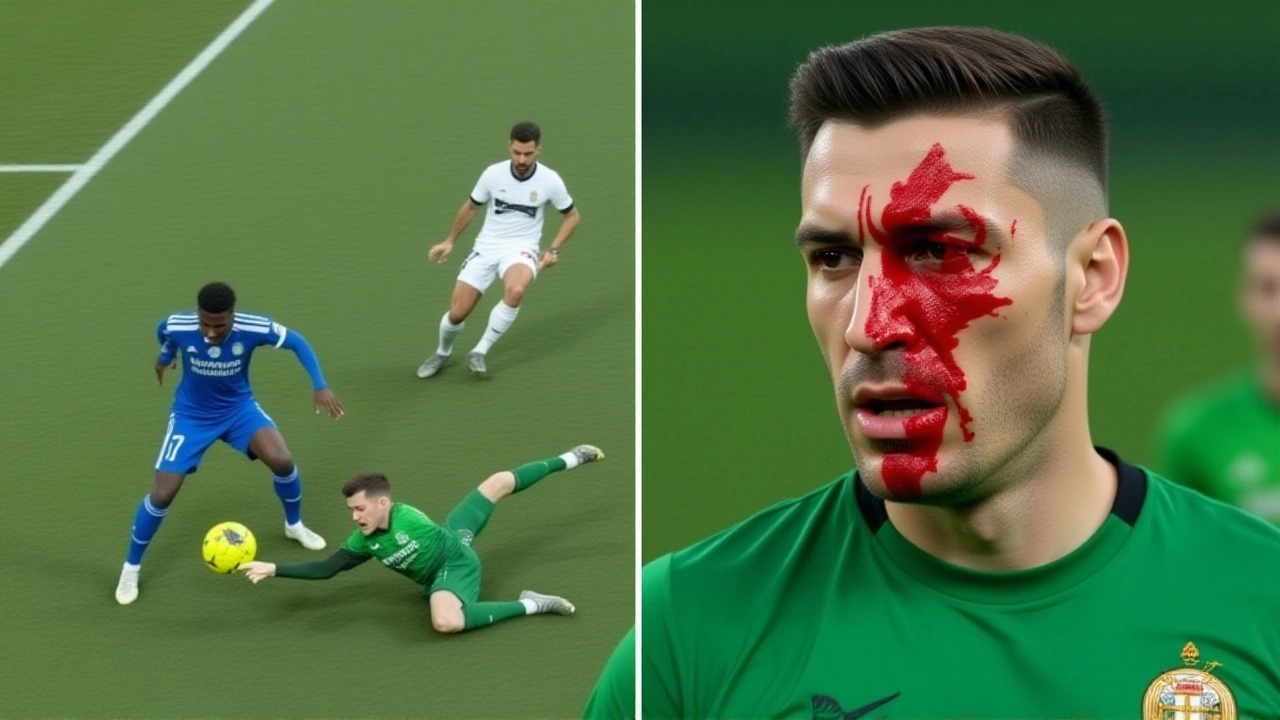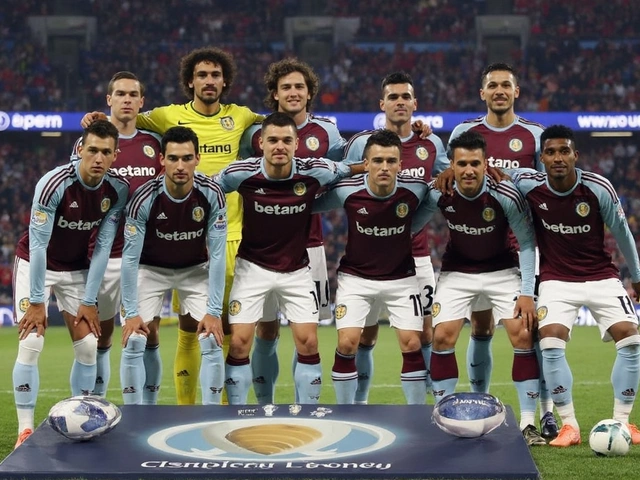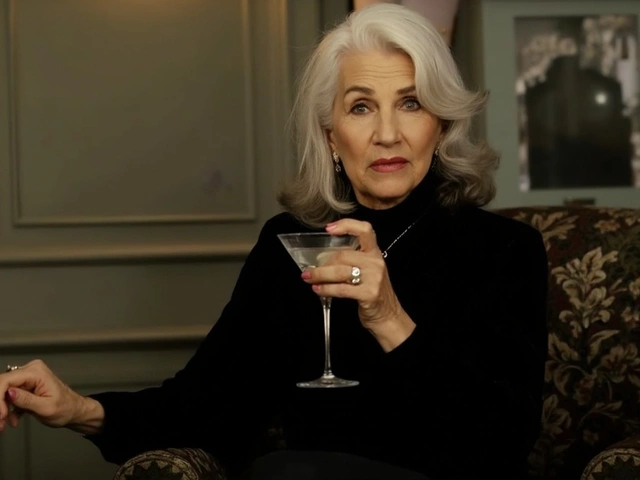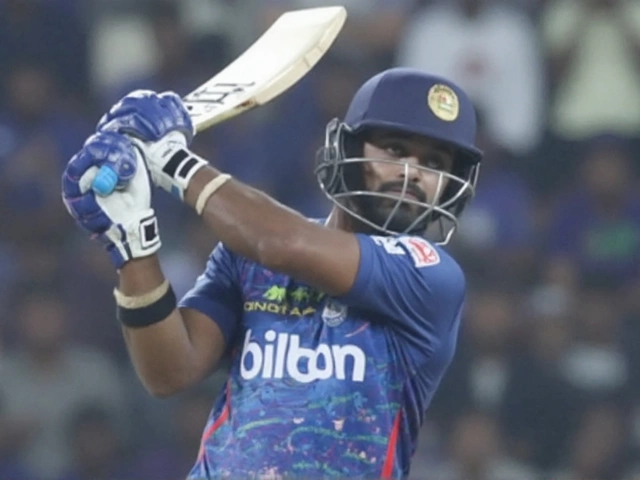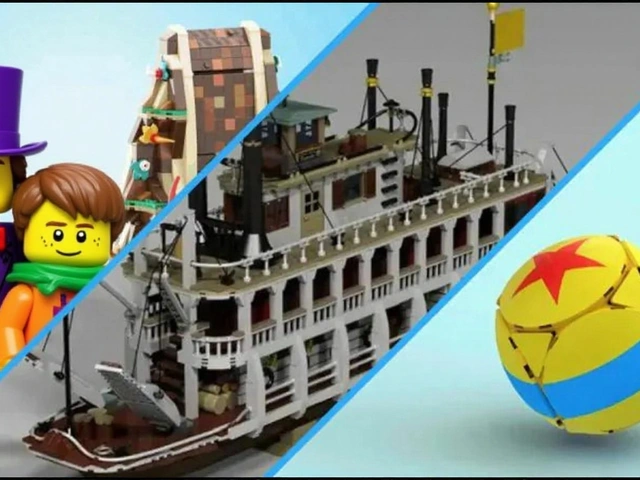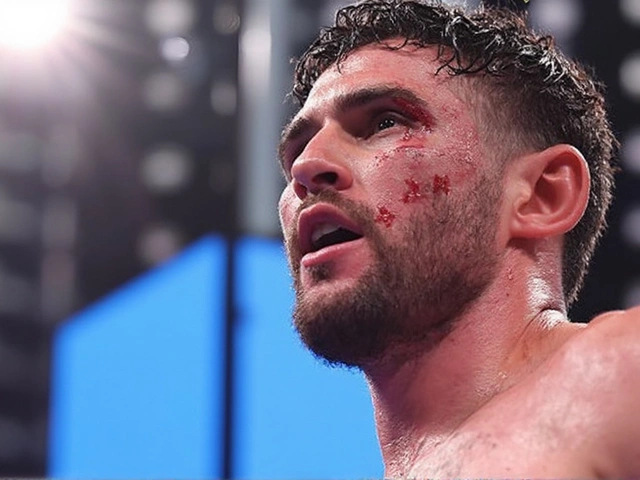In the 87th minute of a pulsating 2-2 draw at the Santiago Bernabéu Stadium, Vinicius Jr. drove his right knee into the face of Iñaki Peña Sotorres, the Elche CF goalkeeper, sending him crashing to the turf with a bleeding nose and temporary loss of consciousness. The collision went uncalled by referee José Luis Munuera Montero, and within seconds, Jude Bellingham pounced on the loose ball to equalize for Real Madrid CF. The moment didn’t just change the score—it shattered the integrity of the match in the eyes of Elche’s players, staff, and fans. Peña, visibly dazed, was treated on the pitch for over two minutes, yet the game continued. By the final whistle, the anger had only grown.
The Collision That Broke the Game
It was 9:17 PM CET on November 23, 2025. Elche led 2-1. Their midfield had just cleared a Real Madrid attack, and the visitors were looking to hold on. Vinicius Jr., chasing a loose ball in the six-yard box, didn’t go for the ball—he went for the man. His knee, still accelerating from a sprint, caught Peña squarely on the bridge of his nose. The impact was brutal. Peña collapsed. Blood pooled on the pitch. The stadium fell silent for a heartbeat.
Referee Munuera Montero didn’t blow his whistle. VAR, operated by Diego Barbero Sevilla at the Spanish Football Federation’s center, reviewed the incident for 47 seconds. No foul. No card. No stoppage. The ball rolled to Bellingham, who buried it from point-blank range. The equalizer was scored before Peña had even risen.
"He shoots, I stop it, and because of the inertia, he catches me on the nose," Peña initially told Movistar+ on the sideline, blood still smeared across his face. He tried to play it down. "It’s just a knock. Natural part of the game." But that wasn’t the full story.
From ‘Just a Knock’ to ‘He Knocked Me Out’
Later that night, in the quiet of Elche’s locker room, Peña watched the replay. Again. And again. The difference between his first statement and his second was stark.
"He shoots, goes for the rebound, but in the second play, he prevents me from participating because he knocks me down," Peña said during the post-match press conference. "For me, it is a foul. But if the referee checks VAR and decides it is not, there’s nothing we can do."
His tone wasn’t bitter—it was resigned. And it carried the weight of someone who’d just been physically silenced.
Elche head coach Eder Sarabia didn’t hold back. "Vinicius doesn’t touch the ball; it strikes Peña in the face. He was not aware of the play. Vinicius hit him in the face. It’s an obvious foul," he told reporters. "That’s not football. That’s negligence. That’s dangerous." He added, almost incredulously: "That foul could’ve led to a 3-1 lead. We had the counter. We had the space. And now? We’re left with a draw and a broken nose."
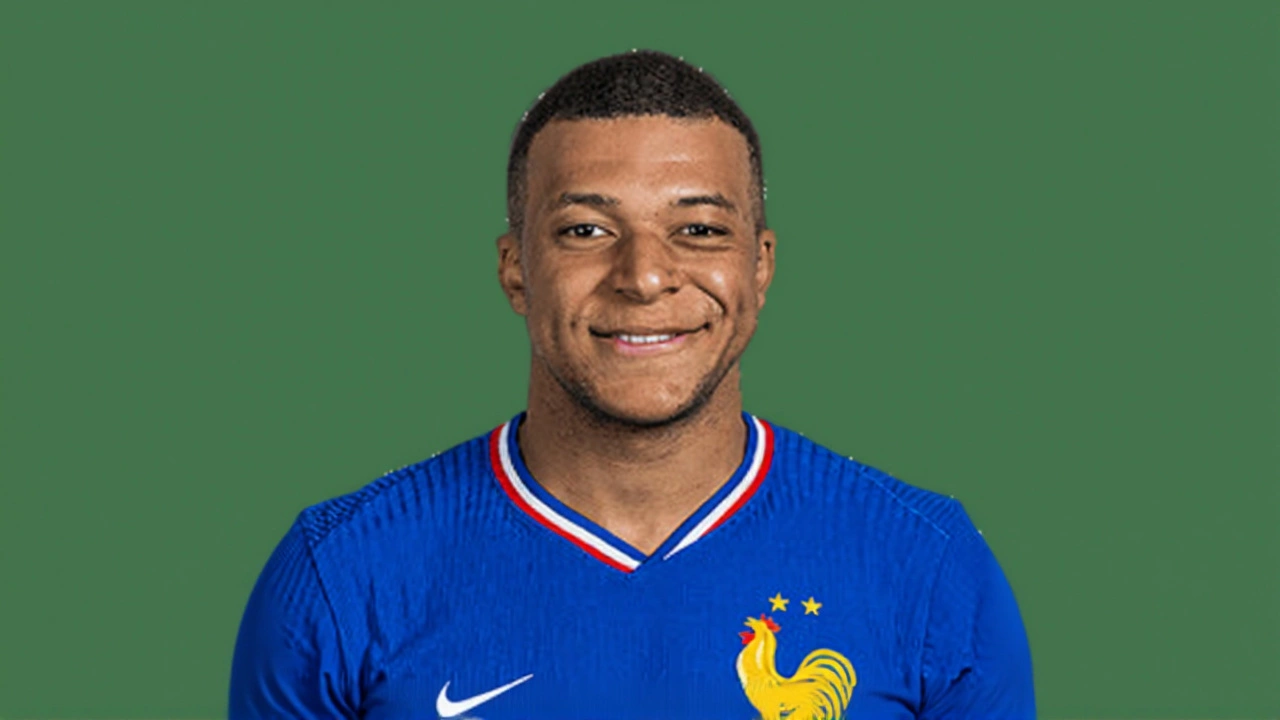
The Pattern No One Wants to Ignore
This isn’t the first time Vinicius Jr. has been at the center of a controversial collision. In January 2024, he clashed with Valencia CF’s goalkeeper in a nearly identical scenario—knee to face, no foul called. The same pattern: a fast-moving forward, a goalkeeper committed to the save, and a referee who looked away. In both cases, the ball ended up in the net.
Real Madrid’s media machine has long framed Vinicius as a mercurial genius, a player whose speed and audacity define modern football. But when that audacity crosses into recklessness, does it become a pattern? Or just luck?
La Liga’s own rules, Article 12.3, state clearly: "Any physical contact that prevents a goalkeeper from releasing the ball constitutes a foul." Peña was in the process of securing the ball when the collision occurred. He wasn’t diving. He wasn’t exaggerating. He was doing his job.
What’s at Stake Beyond the Scoreline
Elche CF, sitting in 11th place with 18 points from 13 matches, had just lost a golden opportunity to climb into the top half of the table. They’d beaten Real Madrid on their own pitch in 2022. They’d led 2-1 in 2025. They had momentum. Now, they’re stuck.
Real Madrid, meanwhile, remain in third with 28 points—still chasing Barcelona and Atlético Madrid. But this draw feels like a moral loss. They didn’t win because they played better. They won because the system failed.
And the system is now under scrutiny. The Spanish Football Federation’s Competition Committee will review Elche’s formal complaint, due by November 25, 2025. Under RFEF Disciplinary Code Article 96, Vinicius Jr. could face retrospective sanctions for violent conduct—even if the referee didn’t act.
"If we don’t protect goalkeepers, we’re not protecting the game," said former referee and current RFEF advisor Luis Miguel García in an interview with El País. "The goalkeeper is the only player who can’t use their hands outside the box. They’re inherently vulnerable. When a player uses their knee as a weapon in the box, it’s not just dangerous—it’s criminal."
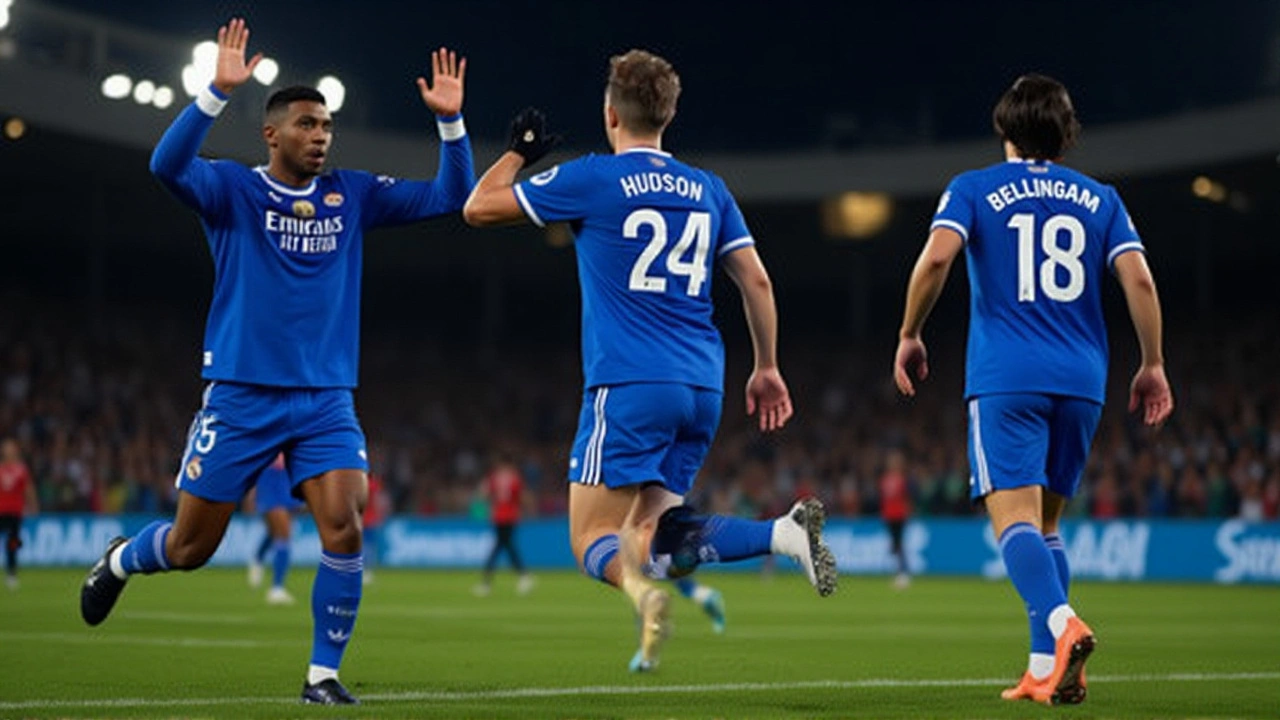
What Happens Next?
Elche CF president José Vicente Guillamón confirmed the club will pursue disciplinary action. They’re not asking for a replay. They’re asking for accountability.
Will Vinicius Jr. be suspended? Unlikely, unless the committee finds intent. But the precedent matters. If this goes unpunished, future goalkeepers will be forced to play in fear. And football will lose something vital: trust.
Meanwhile, Peña, still wearing a nasal splint, returned to training on November 26. He’s cleared to play. But he’s not the same player. Not after this.
Frequently Asked Questions
Why didn’t the referee call a foul even though the collision was clearly visible?
The on-field referee, José Luis Munuera Montero, did not perceive the contact as foul play, and VAR operator Diego Barbero Sevilla upheld the decision after reviewing footage. While the impact was graphic, officials may have interpreted Vinicius Jr.’s motion as part of a legitimate attempt to reach the ball—despite video evidence showing he made no contact with it. This reflects a broader inconsistency in how goalkeepers’ safety is interpreted under current officiating standards.
Can Vinicius Jr. be punished after the match even if no card was shown?
Yes. Under RFEF Disciplinary Code Article 96, the Spanish Football Federation’s Competition Committee can impose retrospective sanctions for violent conduct, even if missed by officials. Elche CF’s formal complaint, submitted by November 25, 2025, opens the door for a possible suspension or fine. Similar cases, like the 2021 incident involving Luis Suárez, have resulted in bans after video review.
How has Iñaki Peña’s injury affected his playing status?
Peña suffered a nasal fracture and minor concussion, requiring two minutes of on-pitch treatment. He returned to the field after being cleared by Elche’s medical staff, but missed training on November 25 due to lingering headaches. He resumed light drills on November 26 and is expected to start Elche’s next match against Girona on December 1, though he’ll wear a protective face shield.
What’s the significance of this incident for La Liga’s reputation?
This is the third major goalkeeper collision involving Vinicius Jr. in two seasons, and the second time VAR failed to correct a clear foul. With growing criticism from coaches, former referees, and fan groups, La Liga risks being seen as indifferent to player safety—especially for goalkeepers. If no action is taken, it could trigger calls for mandatory facial protection for keepers or stricter VAR protocols for contact inside the box.
Why does Elche CF care so much about a single goal in a 2-2 draw?
Because that goal cost them a win against a top-four rival in front of 78,345 fans. A victory would’ve lifted them to 9th place and into playoff contention. Instead, they remain 11th with 18 points. More importantly, it’s about principle: football must reward effort, not punish those who defend it. Losing a game on a controversial call is one thing. Losing it because a player’s knee was used as a weapon is another.
Is this the first time Vinicius Jr. has been accused of dangerous play?
No. In January 2024, he collided with Valencia’s goalkeeper Jaume Doménech in a similar fashion—knee to face, no foul, goal scored. That incident drew widespread criticism from La Liga’s referees’ association. This latest event isn’t an anomaly; it’s a recurring pattern. The difference now? Elche is taking formal action, and the public is watching.
